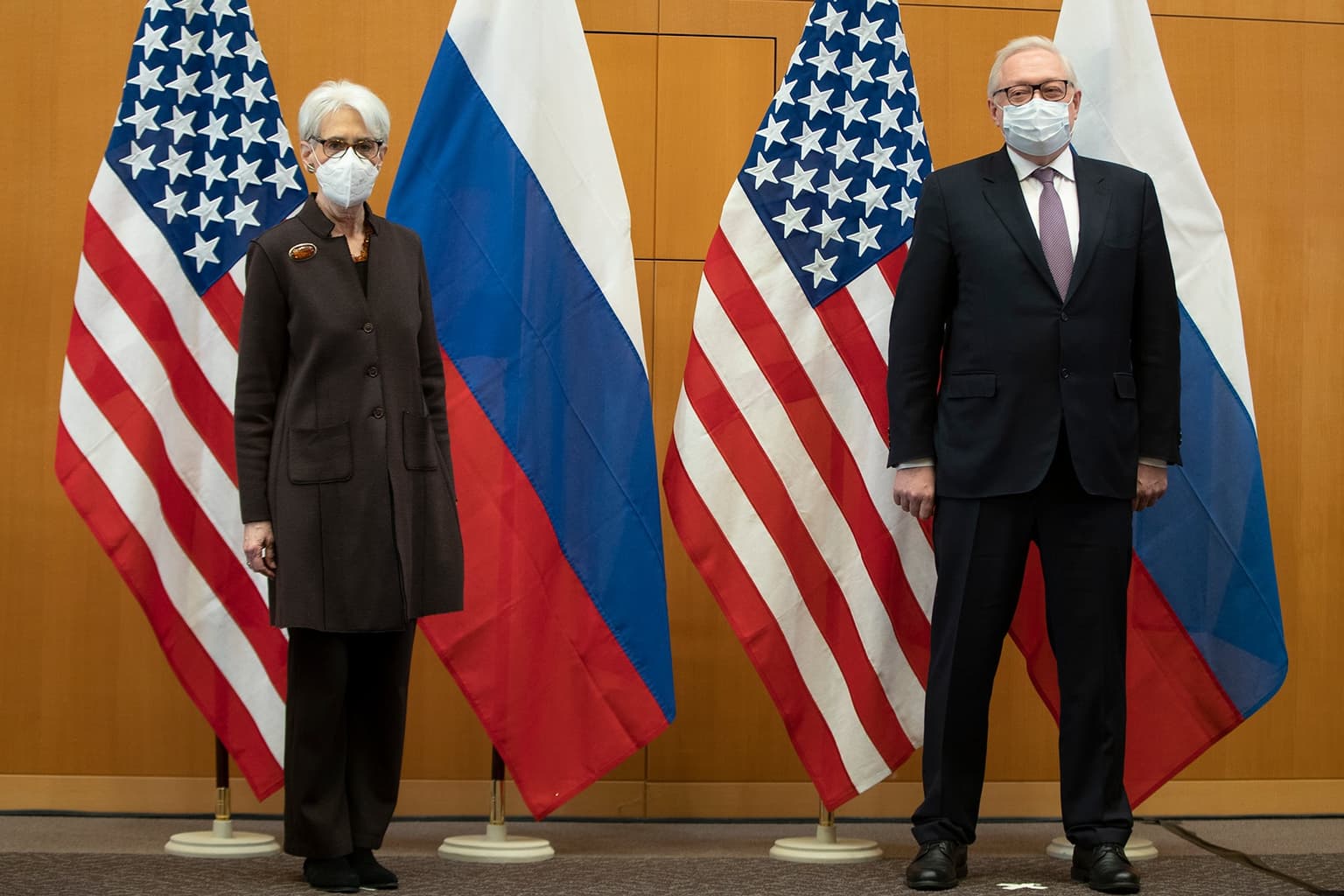Diplomacy week kicks off as US, Russia meet to discuss Ukraine

U.S. Deputy State Secretary Wendy Sherman held an eight-hour-long security discussion with her Russian counterpart, Sergei Ryabkov, in Geneva on Jan. 10.
The talks marked the end of the first day of a week of diplomacy spurred by Russia’s buildup of over 100,000 troops along Ukraine’s borders and Moscow’s demand for a guarantee that NATO won’t expand in eastern Europe and will reduce its military presence there.
Both diplomats have characterized the meeting as “businesslike” and straightforward. Sherman said it was not a negotiation as such but a conversation to understand each others’ concerns.
At a subsequent press briefing, Ryabkov said Russia told the U.S. that it has no intention of invading Ukraine and there is no need to fear escalation. Earlier, Russian President Vladimir Putin said Russia may employ “military-technical measures” if the West can’t satisfy Russia’s security demands.
During her own telephone press briefing, Sherman countered that if Russia wants to demonstrate its unwillingness to invade, it should return the soldiers to their barracks or explain the nature of these military exercises.
Ukraine’s NATO membership is a key disagreement. Ryabkov said that it’s “absolutely mandatory to make sure that Ukraine never — never ever — becomes a member of NATO.” But Sherman said that blocks on membership are a “non-starter” that she pushed back on.
“We will not allow anyone to slam closed NATO’s open door policy,” said the U.S. diplomat. We will not forgo bilateral cooperation with sovereign states that wish to work with the U.S. And we will not make decisions about Ukraine without Ukraine, about Europe without Europe, or about NATO without NATO.”
The U.S. is open to discussing the size and scope of military exercises and improving transparency “on a reciprocal basis,” she added.
The two sides also discussed possibly bringing back the Intermediate-Range Nuclear Forces Treaty — the U.S. pulled out in 2019, saying Russia had violated its terms.
Ryabkov praised the talks as professional and deep, saying he felt the U.S. side took Russia’s proposals seriously.
Sherman said that during the discussion, Russia made multiple references to its December draft treaties for the U.S. and NATO. They call for an end to alliance activity within Russia's comfort zone and for all post-1997 members not to deploy their militaries or weapons in any European countries, including currently deployed forces.
The U.S. treaty includes a formal obligation to halt any further enlargement of NATO to the east and ban former Soviet states from entry, something Washington said it wouldn’t do.
This week’s diplomatic events are an outgrowth of these demands. Russia is also supposed to meet with NATO on Dec. 12; the Organization for Security and Cooperation in Europe (OSCE) will meet on Dec. 13.
On Dec. 10, Olga Stefanishyna, deputy prime minister for European Integration met with NATO General Secretary Jens Stoltenberg and the NATO-Ukraine Commission.
Stoltenberg said at a news briefing that the alliance will keep helping Ukraine implement reforms and modernize its armed forces on top of bilateral support from allies. On NATO membership, he said that Ukraine can move in that direction by implementing reforms.
He cautioned against expecting too much from this week, saying it’s “not realistic to expect that when we have finished this week… that the problems will be solved.”
Both Sherman and Stoltenberg reiterated that if diplomacy fails and Russia chooses to invade Ukraine, it will face harsh consequences. Sherman said these would include financial sanctions on key financial institutions and industry-targeted export control, though she declined to go into deeper detail.
Media previously reported that penalties may include targeted sanctions against Russia’s elite, the disconnection of Russia from the SWIFT banking transaction system and the suspension of the Nord Stream 2 pipeline to Germany.









